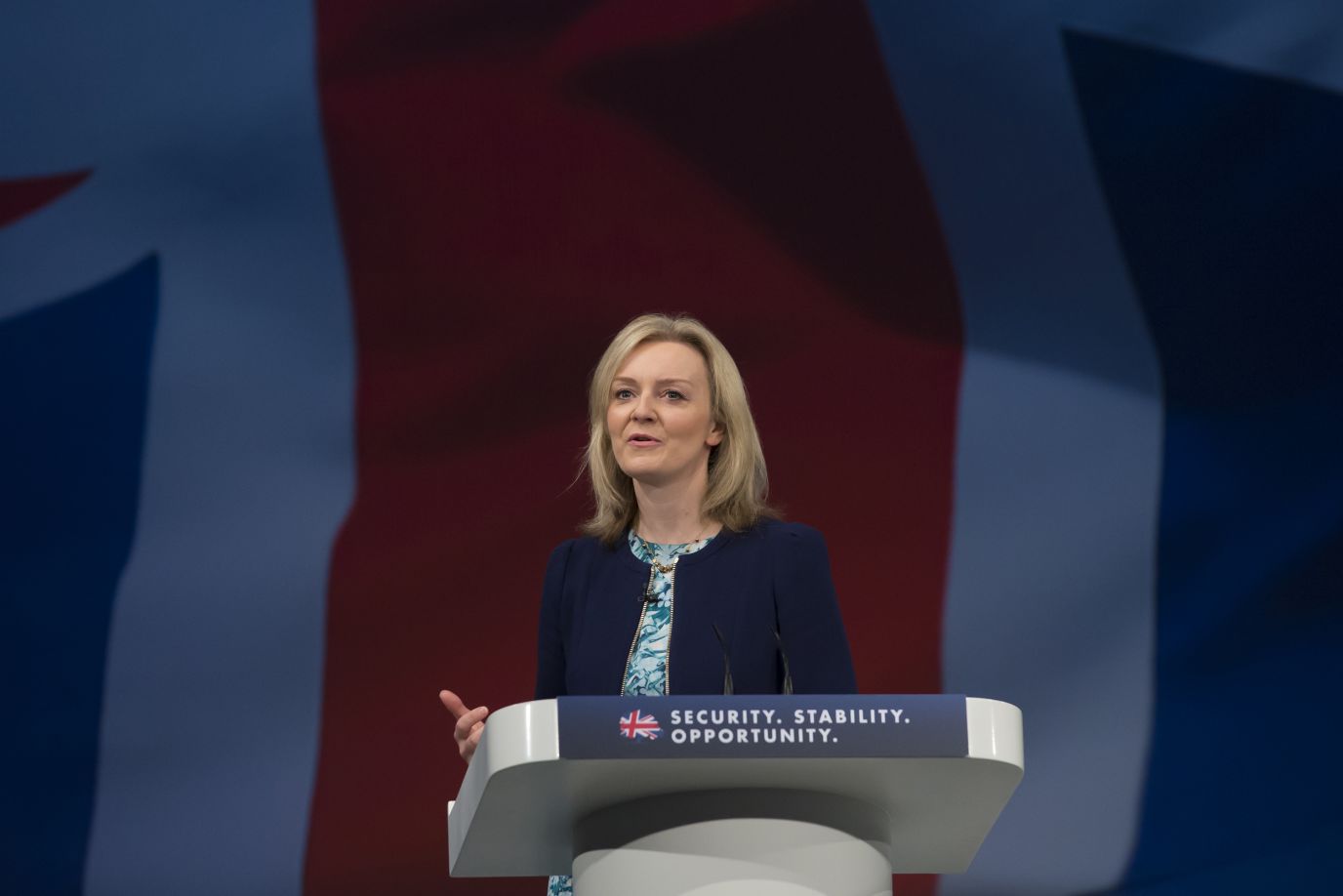hospitals.

It seems that what Conservative governments have treated us to since 1979 may be like a walk in the park compared with what Truss is about to be unleash on us before 2025. Years of grinding austerity, underinvestment in public services, frozen wages and staggering levels of incompetence have culminated in the unmitigated mess we see before us: A country in terminal decline, poverty growing, inequality entrenched, and to cap it all The Wicked Witch of the raving Right, Liz Truss, has now been elected leader of the Conservatives, and, as they are in office, the new Prime Minister. A totally undemocratic electoral process, but hey, ‘that’s the way it’s always been’.
She was voted in, in a country of around 69 million people, by 81,326 (57.4% of the total gaggle) Conservative members. A tiny group, overwhelmingly old, posh, white, male, anti-Europe, anti-immigrant, anti-environment – pro-fossil fuels, backward-looking nationalists. A crazy bunch operating within a dysfunctional system that, like much of the UK parliamentary structure and the primordial electoral model, desperately needs reforming.
The revolting campaign rhetoric spouted by Truss, was we hoped, just that, ranting rhetoric aimed solely at the conservative golf club nobs. Alas, in her first pronouncements as PM, surrounded by baying Tory sycophants, it was clear that Truss lives not in the real world at all, but in a crumbling castle for one, built on a foundation of Neo-Liberal doctrine, situated further to the right than any UK Prime-Minister in recent years.
On Friday, the Chancellor, Kwasi Kwarteng, will outline a mini-Budget to deliver promises made by Ms Truss during her Tory leadership campaign to cut taxes.
The mini-Budget is expected to reverse a 1.25% rise in National Insurance and scrap a 6% increase in corporation tax at a cost of £30bn. A cut in the basic rate of income tax may, it's reported, be on the cards.
The announcement comes at a crucial time. Living standards are dropping at their fastest rate in decades and a recession may be imminent.
And on average, we have been underperforming against major economies over the past 15 years, while income inequality has widened.
All prime ministers promise to make us better off, but they differ in how they intend to do it.
Ms Truss's pitch echoes the small state mantra of those on the right of her party: "Cut taxes to reward hard work and boost business-led growth and investment."
The theory is that by allowing businesses and workers to retain more cash, they should spend and invest more which, in turn, should bring in more tax revenue. Cut red tape, and they have the freedom and incentive to do even more - what's termed supply-side reforms. Another name for this is trickle down economics or what your author terms piss all over you in extremis.
Great Britain today – England, Scotland, Wales, and Northern Ireland — is dirtier and more run down than it was a half century ago; its four nations are more divided internally and from each other; and its people are poorer, fatter and grumpier. British unions are weak, and large corporations are strong. Industries are hardly regulated, resulting in disasters such as the multiple bank failures of 2008 and the Grenfell Tower Fire in 2017. With at least 10% of the current U.K. labor force precarious (gig workers, part-timers, and zero-hour contract employees) and double that number coping with in-work poverty, the gap between rich and poor continues to rise: The modest increase in median income in recent years has all gone to the richest 1/5th, while the poorest 1/5th has seen a decline in real wages. The U.K. is among the most unequal countries in Europe.
Changes in the British capitalism since the early 1970s are in fact so profound, that some have argued that the country is in the vanguard of a new, global socio-economic order, variously called “rentierism,” or “techno-feudalism.” Britain doesn’t any longer derive its wealth from making things or even delivering services, the argument goes, but from “rents” from property holdings, patents, and information, or else from speculation in financial instruments, commodity futures, or currency exchange. The British rentier and financial elite, with multiple homes, yachts, planes, and foreign bank accounts, are like the nobles of old, aloof from the commoners, while holding over them the power of economic life and death. They are an extended Royal Family. (I am grateful to https://www.counterpunch.org/author/stephen-f-eisenman/ an American with strong British affiliations for the final two paragraphs)


